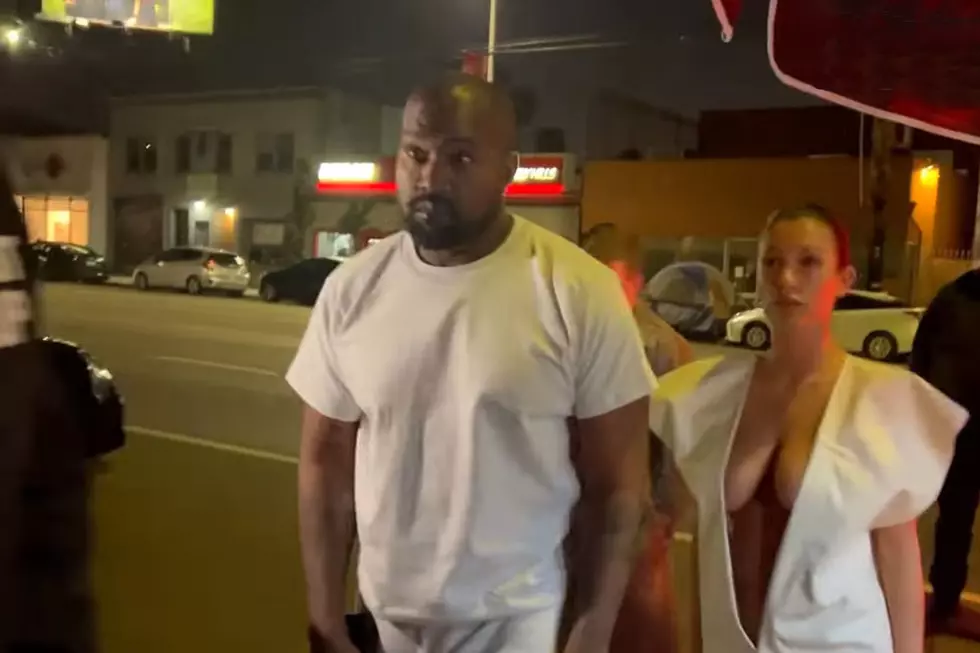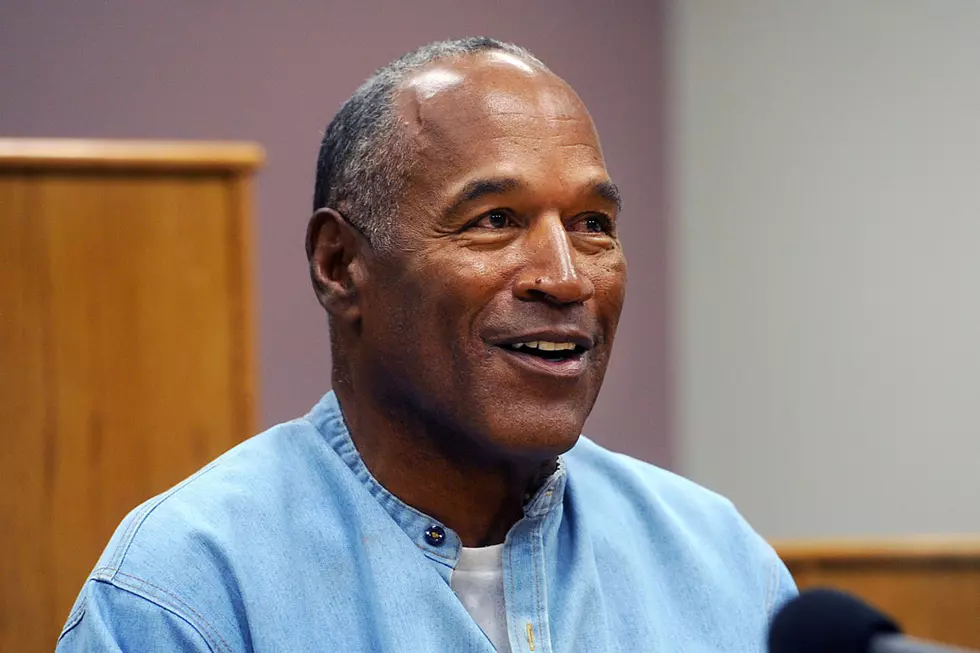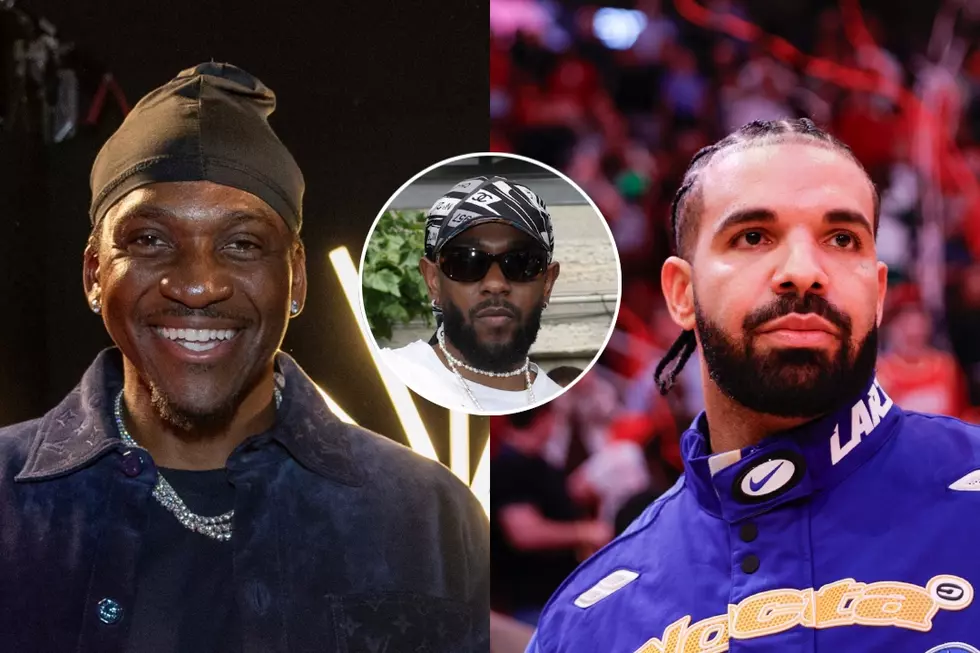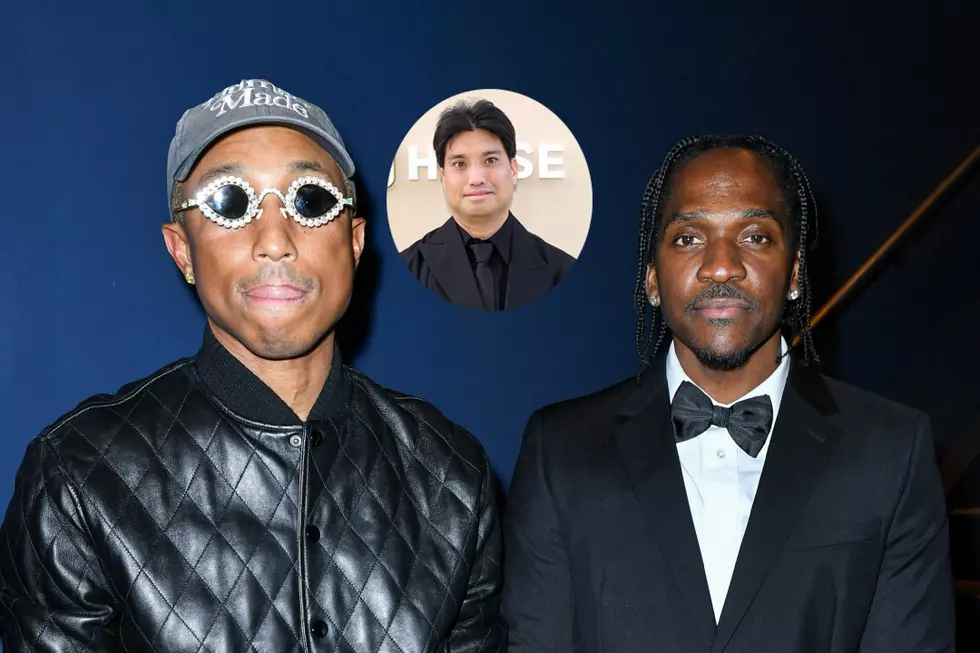
G.O.O.D. Music Family: Monsters, Inc.
Pusha T shot by Fabien Montique & Common shot by Marc Baptiste
On a drizzly mid-August night, Kanye West hosted a private party at an exclusive nightclub on Manhattan’s Lower East Side. The Box’s unmarked entrance, sumptuous decor and frequently risqué performances have an elicit, Prohibition-era appeal that works nicely with his mature “Rosewood” aesthetic—attendees were instructed to wear suits or dresses, put on hard-bottom shoes or heels, and dial a number at midnight to receive event details. This was a high-profile affair to be sure, with British soccer star David Beckham lurking in a balcony booth, model Selita Ebanks dancing in a banquette and a foursquare founder waving his business card at any bouncer who would listen to his pleas to be permitted inside.
Bathed in red lighting and flanked by John Legend on a grand piano, Kanye took the stage at well after midnight in a crisp black suit and Oliver Peoples sunglasses. He exuberantly crashed through a medley of hits, occasionally racing over to a sampler to freak drums and slices of vocals. Between songs, he bantered with the crowd. “One of my friends said, ‘I’m sorry for not dressing up,’” Kanye explained while laughing. “I said, ‘I’m sorry for you!’” When the set was finished, rose petals were left on the stage, making the floor look like a honeymoon suite. Members of Yeezy’s label, G.O.O.D. Music—Mos Def, Pusha T, Mr. Hudson, Big Sean, CyHi Da Prynce—all decked out in fresh black suits, stood to applaud the man of the hour.
It’s not enough to be a Grammy-winning, platinum-selling, model-dating music star. You need a crew. Most often, this takes the form of a label: Jay-Z with Roc-A-Fella Records, Eminem with Shady Records, 50 Cent with G-Unit Records, Lil Wayne with Young Money Entertainment, etc. These collectives are not only a financial benefit, they’re also an emblem of stature and their leaders’ star-making magnetism. Kanye, once a black sheep within the pack of hard-edged Roc-A-Fella wolves, has appeared more interested in working with artists he seems a fan of than building such a stronghold around himself. “G.O.O.D. Music has always, always been the underdog,” says Kanye. “It never quite had what Roc-A-Fella had or G-Unit had. But we never try to force-feed a lot of products to you just off of the name. That was the thing. It was about the music just being really, really, really good. And then the fans chose and decided who they like.”
Now with his celebrity peaking, Kanye has an opportunity to wield substantial, yes, power. But it’s a fascinating situation that he’s created. While most musical unions focus on one style of music, Kanye’s crew is arguably the most wildly divergent group of hip-hop artists ever assembled. G.O.O.D. Music, which includes an acronym for “Getting Out Our Dreams,” includes long-term collaborators John Legend and Consequence, veteran ethicists Common and Mos Def, young Midwesterners Kid Cudi and Big Sean, British crooner Mr. Hudson, cocaine-dealing wordsmith Pusha T, and new Atlanta import CyHi. The thread that ties them? Well, it just seems to be Kanye West.
Before the MTV VMA interruption, before the controversial comments about George W. Bush, and way before the tweets about his “credenza game,” Kanye was an anonymous studio rat. In the late 1990s, the Chicago native managed to earn production credits in the liner notes of artists such as Foxy Brown, Jermaine Dupri and dead prez but was still two years away from his break. Nevertheless, he bubbled with grand designs. He had a local production collective called Kon-Man Productions that housed artists such as Rhymefest, Shayla G. and a group called The Go Getters (himself, GLC, Timmy G and Arrowstar). The company was tied to a promotions agency, Hustle Period, whose brain trust included Don Crowley and John “Monopoly” Johnson, two men who would become fixtures in Kanye’s management team. Everything changed in 2001, when Kanye handled four beats on Jay-Z’s revered LP The Blueprint—“Takeover,” “Izzo (H.O.V.A.),” “Heart of the City (Ain’t No Love),” “Never Change”—and established a signature sound, with chirping vocal snippets, orchestral strings and moody pianos. He soon became an A-list producer whose work extended from the Roc-A-Fella camp to Ludacris, Scarface and Alicia Keys.
Kom-Man eventually transitioned into Very Good Beats, ’Ye’s new production company, and in 2004, his record label G.O.O.D. Music was born with an assorted roster including G.L.C., Consequence, Really Doe and soon added Common and R&B crooner John Legend. (It is unclear at press time if the first three are still down with the label.) G.O.O.D. soon landed a deal with Sony and released Legend’s 2004 album Get Lifted, the company’s first major release, and after selling over two million copies, it was a highly successful one. Soon G.O.O.D. Music had offices in the Sony building and a full-time staff. “I needed his name, in a lot of ways, to establish credibility in the business,” says Legend. “But once that credibility was attained, I didn’t need to piggyback off his fame to do well. We didn’t have to use it as much in marketing and press, so I didn’t have to keep name-dropping that affiliation.”
Pusha T & CyHi the Prynce shot by Fabien Montique & Common shot by Marc Baptiste
During the G.O.O.D./Sony partnership, the label released John Legend’s debut, sophomore effort, 2006’s Once Again and Consequence’s first album, Don’t Quit Your Day Job, in 2007, before the deal came to an end later that year. This has left G.O.O.D. without a major label to back them. A new deal is in the process but was yet to be finalized as of press time.
The original G.O.O.D. Music core reflected the unique musical niche into which Kanye had cagily inserted himself—that of a “backpacker” who had crept in among the ranks of thuggish and commercial rappers. With Drake now controlling the airwaves and the nation’s youth wearing skinny jeans, it’s easy to forget that, in 2003, hip-hop was largely inhospitable to anything besides tough-guy bravura. 50 Cent’s Get Rich or Die Tryin’ was the platinum standard, T.I.’s Trap Muzik came out of Atlanta, and both the Dipset and State Property cliques were Kanye’s label mates. But West not only made records with both Cam’ron and Mos Def, he also staked his nascent career on that dichotomous image. College Dropout was full of relatable records about God, Black fraternities, girls and his car accident, and the artists he recruits to G.O.O.D. Music often possess a similar everyman appeal.
John Legend’s success proved G.O.O.D. Music could break new artists, but Kanye had yet to demonstrate that his touch had rehabilitative powers. His opportunity came with Common, a fellow Chicagoan who first met ’Ye at producer No I.D.’s house back when Common was the city’s lone nationally known rapper. Even then, Kanye was exuberant and obnoxious, relentlessly playing beats, challenging rap battles and running his yap to whomever would listen. “My friends, they liked Kanye, but he would come out of his mouth and say all types of wild stuff,” Common says. “They’d be ready to fight.” At the time, Common scoffed at Kanye’s novice production efforts. “I was like, ‘You gotta get to that level before I take one of them beats,’” Common says with a chuckle.
Years later, Common was the one who needed a hand. Following 2002’s Electric Circus, an album that bravely dove for musical eclecticism and surfaced with a lungful of pretension, some of Common’s core constituents expressed dismay at his transformation from a purist b-boy to a neo-soul shaman draped in wildebeest-hair capes. But Kanye’s modernized boom-bap stoked the embers of Common’s old fire. In 2004, Common appeared on College Dropout’s “Get ’Em High” and inked a deal with G.O.O.D. Music. An agreement was reached with Common’s label, Geffen Records, where forthcoming releases would carry the G.O.O.D. badge if Kanye was involved in creating the music.
Common’s next album, 2005’s Be, leaned heavily on ’Ye’s popularity and musical chops. West produced all but two tracks, rapped on a number of songs and performed hooks on singles “The Corner” and “Go.” The album was lavished with praise—this magazine gave it an XXL rating—and was certified gold after selling over 900,000 copies. “The combination of Kanye’s presence and his ever-so-flowing promotional-marketing genius changed my career,” Common says. “It started first with the music that we created. It sounded new but brought the elements of what Common had brought to hip-hop before.”
Com’s since released 2007’s Finding Forever and 2008’s Universal Mind Control on G.O.O.D. Music and plans another for early next year. There’s little doubt among hip-hop heads that Kanye’s association helped to tack half a decade onto what has become an eminently surprising 18-year career. —Ben Detrick
To read the rest of the G.O.O.D. Music story, as well as Kanye West’s self-penned cover story and his 40-page package, be sure to pick up the October 2010 issue of XXL, which is on nationwide newsstands now!
More From XXL









